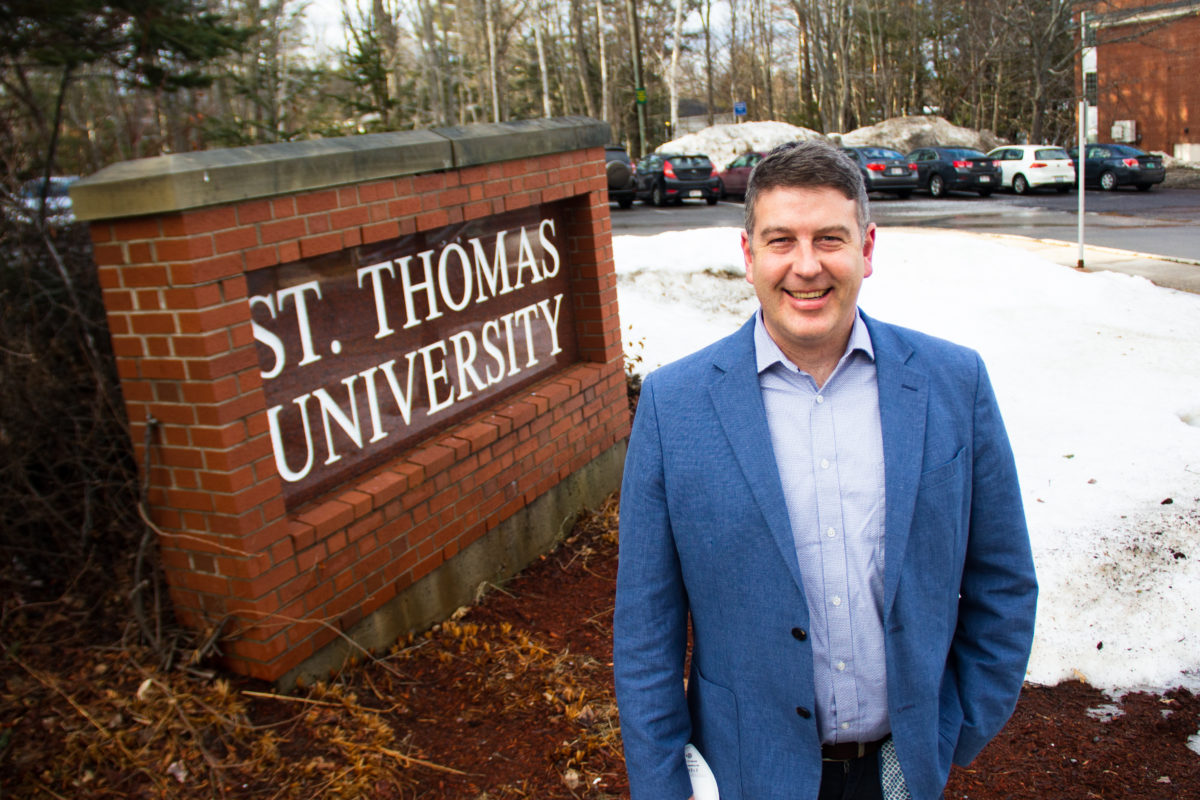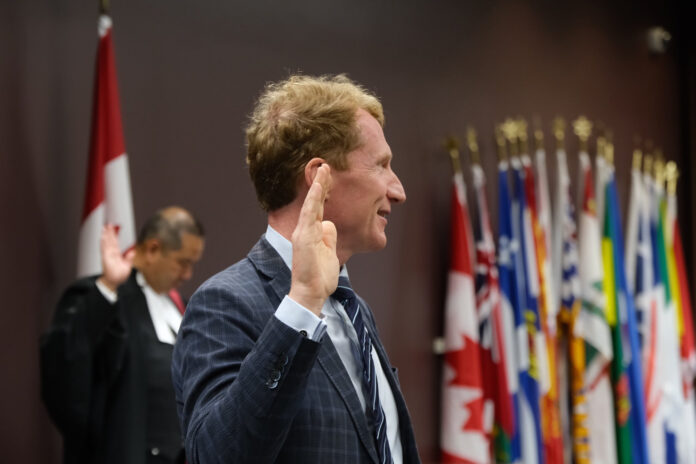On Sept. 18, Immigration, Refugees and Citizenship Canada (IRCC) announced changes to international students immigration policies which will reduce the amount of study permits for 2025 and 2026.
Many international students were grandfathered in after the IRCC’s initial changes last winter. The new reductions will now affect all international students, especially those applying for post-graduation work permits (PGWP).
The Aquinian’s managing editor Katherine del Salto explains the background and new changes in the immigration policy.
New changes, new concerns
In a press release, the IRCC announced they will tighten the international student cap by another ten per cent.
The previous cap that was announced last year had a limit of 485,000 total study permits, with only 360,000 new study permits for undergrads being issued. In 2025 and 2026 the target will be decreased to 437,000 total study permits.
To address the “needs of businesses and support economic recovery,” the federal government is also introducing changes to the eligibility of PGWP “to better align with immigration goals and labour market needs.”
Undergraduate international students who are applying for their PGWP after Nov. 1, 2024, will now have to show a minimum language proficiency in English or French to obtain it.
Public college students will remain eligible for a PGWP for up to three years only if they are graduating from a field of study in an occupation that has a long-term shortage.
These changes are becoming concerning for post-secondary institutions in N.B. and international students close to graduation.
Related: ‘We don’t have the same issues’: STU reacts to new International student cap
Ryan Sullivan, St. Thomas University’s VP of enrolment management, expressed his disappointment with the immigration policy changes.
“I think at this point we recognize that the government is not going to change course on having study permit caps,” said Sullivan. “We’ve implemented processes at St. Thomas to work within that reality the best that we can.”
According to Sullivan, the university has been working on these changes since they were announced.
Sullivan said they had meetings with the province’s Post-Secondary Education, Training and Labour department (PETL). He said the department has been providing updates from the federal government on the province’s allotment and the distribution of attestation letters for schools in the province.
Attestation letters are a document provided by the provincial government confirming international students have applied to study in a post-secondary institution in the province.

Cap first introduced to target ‘bad actors’
On Jan. 22, 2024, the federal government announced the international student cap, only approving 360,000 undergraduate student permits in 2024. This was a 35 per cent reduction from 2023.
The two-year cap introduced by IRCC Minister Marc Miller aims to protect international students from “bad actors,” stabilize new growth in Canada and limit the impact international students have on the housing market, health care and other services.
The “bad actors” according to the IRCC, are private colleges who offer a curriculum licensing agreement associated with a public college.
Some of these institutions have increased their intake of students to drive their revenues, without providing the proper supports international students need to succeed in Canada.
“Today, we are announcing additional measures to protect a system that has become so lucrative that it has opened a path for its abuse,” said Miller in an IRCC news release when the cap was first introduced.
To address this issue, the IRCC has also implemented changes in the requirements and eligibility for PGWP.
International students who began a study program as part of a curriculum licensing arrangement are no longer eligible for PGWP. According to the IRCC, these programs have less oversight compared to public colleges and “act as a loophole with regards to post-graduation work permit eligibility.”
International students uncertain about their future in Canada
Despite STU’s preparations for these changes, international students continue to worry about the effects the tightened cap and eligibility changes will have.
Rigel Testas, president of STU’s International Students Association, shares her concerns with the impact of the current international student cap on campus.
Testas said that she has noticed a lack of engagement on campus since the cap was implemented. She worries that campus activities, clubs and societies as well as the overall diversity international students provide to STU will be further diminished.
“I’m scared that because of these new limits, [there’s] going to be less engagement and less people who want to run these associations and clubs that will give opportunities and activities to people to connect with others.”
Related: ‘It’s a bridge that was burned for me’: International students change plans after study permit cap
Sullivan confirmed that the international student enrollment was lower this year, he said STU is still working on understanding what the exact number is and the impact of the enrolment decrease.
He alluded to different aspects that contributed to the reduced international enrolment.
“We can point to situations where students who were intending to come did not end up coming,” said Sullivan. “Whether it was because of the new $20,000 cost of living, or with more scrutiny on study permits and the delays of study permits being issued.”
Before the initial cap was introduced, international students only had to prove they had $10,000 in their bank accounts to attest they could cover their living costs in Canada.
Besides losing engagement, Testas also worries about her future in Canada. As a third-year student, she is starting to think about her plans after graduation. The changes in eligibility to the PGWP make her feel uncertain about her status in the country, which she said is a sentiment many of her peers share.
“I like to set roots here in Canada, have better opportunities that we [international students] don’t have in our home country,” said Testas. “I think that these new policies are making it harder for us to fight to have this opportunity to stay.”
What to look forward to
According to Sullivan the provincial allotment is anticipated sometime in November of this year. After the allotment, PETL will work with institutions in the province to distribute the allotment individually.
STU is waiting for this information to have a better idea of what their next steps will be.
Sullivan said STU didn’t use the full number of provincial attestation letters this past cycle, which makes the university optimistic about what’s next.
“We are optimistic at St. Thomas that we can continue to work within the numbers that we are provided in order to continue to look at maximizing enrolment.”
Sullivan did clear up the idea of tuition increases as a result of the cap. He said that there are no current plans to increase tuition for either domestic or international students.
“Tuition is still relatively stable, so we don’t foresee at this point the policy changes having a significant impact on tuition rates,” said Sullivan.
Sullivan said STU will continue to work with PETL, allowing them to create workshops on the pathways of immigration and working with Borderpass.
Borderpass is a service that provides students help to submit their study permit, but now offers legal advice at a discounted rate to help apply to the PGWP.
Sullivan encourages students who would like to apply for their PGWP to pay close attention to immigration policy announcements and get their driver’s license.
“It will be very important to pay attention to these announcements, recognize they have to be prepared to apply for their study permit or their postgraduate work permit at the earliest possible date,” said Sullivan.

